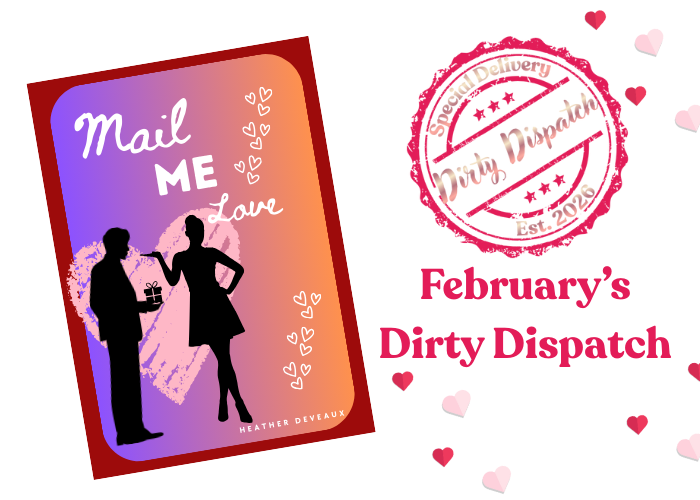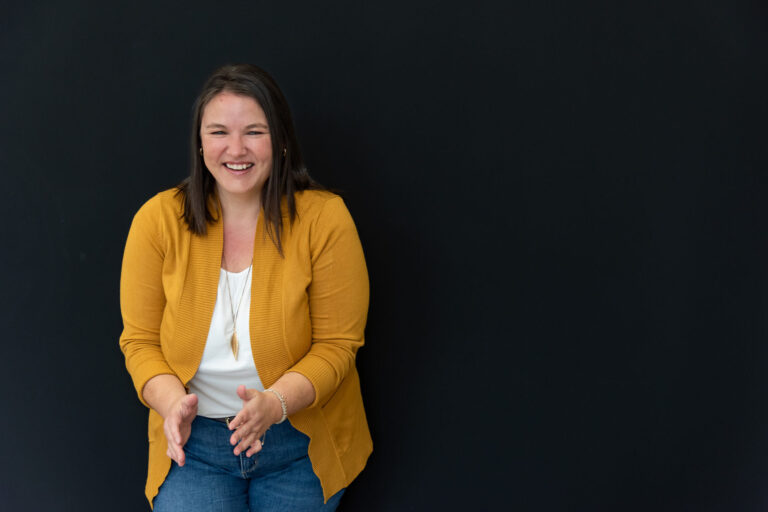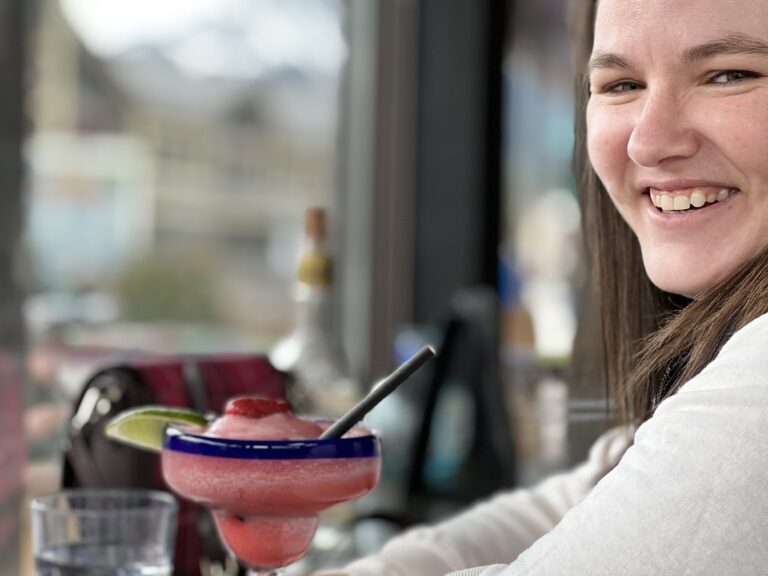The Essential Core Values I Use to Make Better Decisions
“Make better decisions”, they say. “Do more”, they say. “Create more output”, they say. Sure, they say a lot. But sometimes, they are wrong about how to go about doing this thing called life. I’ve tried on all kinds of systems and frameworks over the years, but when it comes down to it, I trust nothing more than my own gut. All of the good advice in the world doesn’t mean anything unless we’ve got a filter that allows us to be discerning, otherwise, we’re just doing what they say, hoping it pans out for us.
As I draw the curtains on the third month of my creative sabbatical and wonder where in the hell the time has gone, I want to share some things I’ve learned about values. There are lots of outputs associated with this creative sabbatical: my writing, art, adventures, growth. I’m doing a lot of things. But more importantly, there is even more clarity. A sort of quiet knowing is emerging and it’s fascinating to me to see it unravel, and spiral at times.
I often get asked how I make decisions with such confidence. For instance, people ask me how I can just take a year off without knowing what’s next. I actually don’t have an answer for what’s next, much to the dismay of my brain. It loves to close a loop. But I can answer the question about confidence: lean into core values.
I’ve been thinking about what my values are and in true Heather fashion, they’ve emerged not as core values, but thresholds. These are the things I need, at a minimum, to feel like I’m being true to myself. And these “core values” or “thresholds” do help me make better decisions, so I want to share them with you now. These core values create an operating system, whether I realize it or not, to help guide my choices. Maybe they can help you get clear on what guides your choices too.

A Money Threshold Will Help You Make Better Decisions
I’ve always been motivated by money, but only to a point. In running my consulting business and growing it to a 6-figure business multiple years in a row, I’ve come to learn that what I crave more than money is time. But I need a certain amount of money to live. That’s true of everyone. It’s become painfully obvious to me while engaging in this creative sabbatical that there are certain things I don’t want to do anymore, even if someone paid me a lot more than they do now. That includes consulting work.
It’s been a hard pill to swallow to admit that I’m ready to move on from my consulting business, especially with no clear decisions yet made about what’s next, but it’s been liberating to let it go in favour of time.
Because I’ve created this time for myself to spend a year exploring creative projects, I’ve had to create some restraint and boundaries around the money I do have to live on this year. It will run out eventually, even if I’m as frugal as a mouse, but that doesn’t worry me. I’ve decided that I’m not giving any serious thought to what comes next for me until I hit a $20,000 threshold. That means when I have only $20K left in my savings, I’ll get down to business considering my next moves.
What A Money Threshold Allows
Sure, something might come up in the meantime, but I’m not jumping on it until I hit that threshold. This gives me the freedom and flexibility to continue to use this time I’ve earmarked the way I imagined: without pressure.
Having a money threshold has been something I’ve learned to allow in my life over time. Like a lot of people, I’ve lived plenty of days in overdraft, but it’s been years since that was my reality. Knowing my numbers and paying attention to what I spend my money on has allowed me to budget for an entire year in the wings, doing whatever I want to do. Sure, there’s lots of spontaneous spending going on, but it’s accounted for because I spend money on one of three things: books, travel, and home renos. I planned for one major home reno this year. I travel light these days with road trips and camping.
My book budget? That’s none of your freaking business. Carry on.
The point is to be honest about what’s important and to understand how long money can last in your hands. It gives you buying power, sure, but it also allows you time, and time is one of the essential ingredients you need when you want to make better decisions.
The Hell-Yes Threshold
I’ve always been a people pleaser. It’s hard to imagine, I know, but I am guilty as charged. I will bend over backward for someone who needs something from me, even at the expense of myself, my mental health or my finances. However, in an effort to make better decisions over the last few years, I’ve been practicing saying, no.
How do I know when to say no? It’s simple: If it’s not a hell yes, it’s a fuck no. If that sounds easier said than done, then you’re probably a people pleaser too. Thanks for being here. I didn’t say it was easy: I said it was simple. The difficult part is sticking to the minimum standard we’ve set for ourselves in the faces of those asking us for something.
When I think about how I want to live my life, I remind myself of all the times I felt uncomfortable doing something just so someone else could feel comfortable. Be a passenger when I wanted to be the driver? Sure. If you’re more comfortable driving, that’s cool. I’ll sit back here and be quiet. Those days are long gone.
That’s a Hard No for Me, Thanks
If I’m not driving, I’m not going to hide the fact that I was once in a car accident with a bus and am an anxious passenger now. You’re going to hear about it. You’re going to hate it. And you’re probably going to tell me to drive. Instead of sitting in the backseat feeling uncomfortable, I speak up. I don’t care if it makes me a backseat driver. This is my life we’re talking about here.
The hell-yes threshold has lots of wiggle room based on circumstances, obviously, but the point is to be crystal clear about the stuff that gets a fuck no. You don’t always need a hell yes if the no is stronger. In order to make better decisions, it’s often easier to know what we don’t like than what we do like. I’ve always been a “work backwards” kind of person. I can tell you with frightening clarity what I don’t like. I need a minute to tell you what I do.
The No Room for Compromise Threshold
As I’ve been navigating relationships after divorce, I’ve come to find that I’m an unwilling participant in many areas of partnership. If your idea of a good time is watching television for four hours every night, we’re not going to get a long. But, if after a long day of living life you want to plop on the couch and watch a show or two, I’m cool with that.
What I will no longer tolerate are people who are going through the motions. If you’re not lit up about something, we’ve probably got nothing to talk about and certainly won’t be able to find something on TV to share for a few hours. After a few messy years, I decided that I will not allow any room for compromise when it comes to my life. Sounds entitled, sure, but that’s a decision I get to make for myself. You don’t have to approve of it; everyone can live in as much compromise as they feel comfortable. You get to make that decision for yourself too.
No Compromise Doesn’t Mean You’re Difficult
This is about being holier than thou or being better than other people. It’s about discernment. I feel drained on days I sit in front of the TV doing nothing but try to hold on to a half-baked story line with bad acting. It’s boring. I am never bored. If I’m bored, something is wrong. And I’m almost always bored sitting in front of the television.
Rather than compromise on how I feel, I just don’t subject myself to the things that suck the energy out of me anymore. Yes, I watch Netflix like the rest of the planet, but in small amounts, at specific times. For example, yesterday, I spent nearly all day rotting on the couch watching movies I’ve seen a hundred times. Because that’s what I wanted to do it, not because it was what I always do and there was no point in doing something new.
The Neutral State Threshold Helps You Make Better Decisions
As someone who was diagnosed with ADHD before it was trendy, I can tell you that the excitement and momentum one can gain from a single idea is striking. I’ve written entire books, developed entire businesses, planned entire trips, taken said trips, and sourced and bought new homes within hours of coming up with those ideas only to crash out and wonder why I can’t keep going on certain things.
It’s taken me a long time to get here, but over the last three months while engaging in my creative sabbatical, I’ve become hyper aware of this other setting: neutral. And not the “going through the motions” kind of neutral. A state of neutral where excitement or anxiety don’t take over. It’s always been there, of course, but it’s only recently that I’ve been able to see it and focus on it to guide how I can make better decisions.
Rather than chase the thrill of an idea, I sit with it for a long time now. This is an unusual activity for me and uncomfortable sometimes because I pride myself on being someone who can make things happen quickly, but it has been a worthwhile activity, to be sure.
What Does My Body Think About This Idea?
For starters, I’ve had about 101 business ideas since I’ve started engaging my creative sabbatical, but because I have a better understanding of what I want and need right now, and because I have my money threshold value in place, I know I don’t need to rush any decisions. I can let them come and go without worrying they’ll never come back. Before, my mode of operation was always to run down an idea before it got away from me. I’m able to make much more informed decisions by sitting with ideas for longer now than I’ve ever been able to do before.
The most important thing that’s come out of identifying this neutral state in my body and brain is that most of the ideas I have, I don’t even want to do them. I just want the feeling of creating something, so instead of running down a dream, I create something in real time, in real life. No longer, do I don’t need to get half-way into an idea to see if it’s going to make money. I can just have the idea and find a creative outlet to focus on instead. It’s been pure magic. Probably science. But aren’t they the same thing?
The Autonomy Threshold
The idea of freedom has been one I’ve been carrying around with me for as long as I can remember. I’m going to spare you the details, but the high-level story goes like this: “I don’t like the way you’re running this company, so I’m not going to work at this company.” I’ve quit more jobs than most people have had and I’m still pretty young in my career.
I’ve been able to identify through lots of thought work and self-reflection that freedom is something that is important to me. Not just any kind of freedom, although, sure, that’s nice too. I mean the freedom to contribute. The freedom to choose. The freedom to walk away if something doesn’t fit. And boy, in a career like mine, a lot of things haven’t fit.
We Get This One Amazing Life..and You Want to Kill Yourself Working it Away?
My father died when I was 8 years old. He had a sudden heart attack and died at the age of 33. Imagine dropping dead from a heart attack at 33 years old. I did, lots of times. In fact, that thought sunk so far into my brain at the age of 8, that whenever I had a job that I didn’t like, my first thought was “I don’t need to put up with this. I’m going to die someday.” I also have this burning thought that hard work kills people because my father died taking an overtime shift working in the coal mines.
I developed a story in my brain about never working myself to death for anyone. So I didn’t. Ever. I walked away. It’s served me well to help me find things I actually like doing for work, but it reads a little morbid so I don’t always whip that piece of information out. I’m telling you this because it’s been a filter for me for as long as I can remember: if I died doing this job, would I be okay with that? Probably not. See ya! I’m not going to try to fit into anyone’s systems if they don’t serve me. Sorry, not sorry.
The Expiry Date Threshold
The Expiry Date Threshold is an interesting one and one that ties directly to my ADHD, but also this new found desire to create a certain feeling in my life. If I lose interest, we’re all screwed. If something can maintain my interest, and it can challenge me, create opportunities for learning, and if I’m dead set on figuring it out, we’re all winning.
I’ve known for a long time that if I lose interest in something, it’s dead in the water. It’s only been since I’ve been in my 40s that I realize that’s just good sense. It’s not a cop out, like I used to think it was, nor was it laziness. Hell, it’s not even disinterest. This a filter. It tells my brain to focus on the things it likes, not the things it feels like it should like.
Everything Has an Expiry Date…Some People Call This “Seasons”
We all do it: stay in marriages longer than we should; keep jobs longer than we should; put up with our crazy in-laws longer than we should; avoid telling that cranky neighbour off longer than we should. By understanding when something no longer serves you, you are able to make better decisions for yourself.
We all want to make decisions that serve us, but we’re too busy trying to make sure everyone else around us is comfortable first. I quit doing that over the last few years, and especially over the last few months of engaging in this creative sabbatical. If I want to do something and I’m not hurting anyone or breaking anything, I’m doing it. And if it doesn’t feel good tomorrow, then I won’t do it again.
The Minimum Energy Threshold
I mentioned earlier that watching television sucks the life out of me. This is an important point for me because it helps me to identify the activities that light me up and the activities that lay me out. It might not seem like a big deal to some, but when I started paying attention to how I felt AFTER doing something, and not just while doing it, I became far more deliberate with how I spent my time.
I think one of the most important and impactful decisions we can make is how we spend our time. If we’re just going through the motions, we’re going to feel drained. If we’re doing something that creates meaning or purpose, we’re going to feel fulfilled.
As I’ve gotten to know myself at a deeper level over the last couple of months, I’ve come to realize that there are only a few things that actually bring me joy, as some might say. And the truth is those things have always brought me joy. I just don’t make enough time for them.
What Do I Want? Not What Do You Want From Me.
I’m too busy trying to do the things I think I should do or am supposed to be doing. And yeah, everyone has to pay bills and has responsibilities. I’m not talking about that. I’m talking about the time we waste even when we feel an overwhelming urge to do something else with it.
I’ve used this threshold many times to get my ass moving when it doesn’t want to because I know I’ll feel better AFTER the fact. Thinking about how I will feel when I do something often helps alleviate the anxious I feel while thinking about doing it. Case in point: taxes.
I have trained myself to love tax time. Most people can’t think of a single other person who loves tax time, but I do. I love it because it means I made money. I love how it feels to do my part to contribute. We rarely think of taxes as a contribution to society, but it is. I love how good it feels to see the facts and not live in the worry about the numbers. It feels better to just get it done than put it off for as long as I can, whatever the damage may be.
You Can Benefit From Helping Others Too
The minimum energy threshold is an important one because we’re taught (especially as women) to give before we get. Giving is awesome. It’s great. But it can also suck the life out of you so you have nothing left for yourself.
I no longer operate this way. Instead of feeling resentful for having to give so much of myself for something, I ask myself what I want to feel or get from the experience too.
Sure, we’re probably not supposed to do that, but come on, why not? Why can’t an experience be good for everyone involved? Why do the scales have to tip in one direction in order for it to be seen as valuable? It’s exhausting and so if I think something or someone is only going to take from me, and I’m not getting a gooey feeling, at minimum, for doing the thing, I’m not doing it.
Why Essential Core Values Matter
I’m not going to give you a TED Talk about core values. You know what they are and you probably have a set of your own in one form or another. But I want to talk to you about why they matter when it comes to making better decisions. And I’m going to do it in a selfish way: when you filter your decisions through your core values, or as you’ve seen me do here with my thresholds, it means you’re getting to live more of the life you actually want, not just the life others tell you to live.
I think we’re often confused about what we want because we’re looking for other people to tell us it’s a good thing to like. But everything we need to know about ourselves, our likes, dislikes, wants and needs is already inside of us. We’re just too busy filtering for acceptance and validation to listen to the bits of knowing that already exist within us.
Taking the Time to Reflect and Move Forward
After spending just three months doing whatever the hell I wanted to do whenever the hell I wanted to do it, I can tell you this: clarity comes from listening to yourself, not running another idea up the flagpole. It comes from being honest about the simple things: do you want to do this? Do you still want to do this? And it comes from following a feeling, not an outcome. The question is this: what do you want to feel?
If you’re struggling to get clear on your core values or you want to journal about what’s important right now (which is really all that matters, if you ask me), consider joining my 5-day Journal Challenge. I’ll send you an email a day for 5 days and help you filter out some of the noise in your life so you can finally hear yourself. It’s worth it. However you get there.





